Best protein powders 2026 for muscle building, weight loss and more
Maximise muscle growth and aid recovery with these best protein powders

Matt Kollat
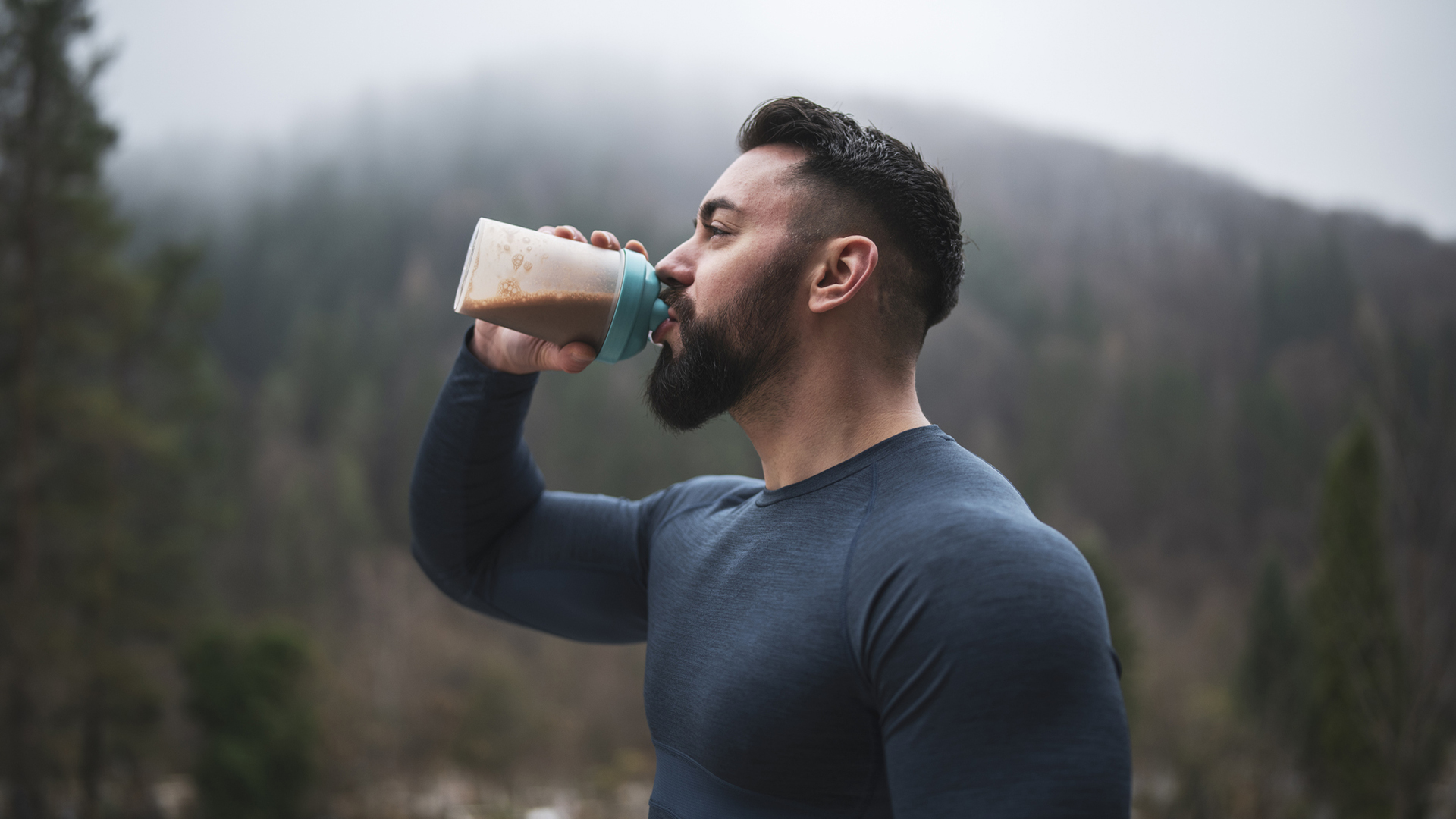
Get all the latest news, reviews, deals and buying guides on gorgeous tech, home and active products from the T3 experts
You are now subscribed
Your newsletter sign-up was successful
As someone who lifts weights four times a week, protein powder is the most important supplement I take to aid muscle growth (alongside creatine). Most of us should be able to consume enough protein through a well-balanced diet but, if you’re looking to increase muscle mass and boost recovery, then topping up your daily intake with this supplement can help.
Protein is made up of amino acids and it’s what our body uses to help build and repair muscle, bones and cells. According to Harvard Health protein also supports our immune system and organ function and, if you’re looking to lose weight, it can leave you feeling fuller for longer.
There are four main types of protein powder: isolate, whey, casein, and plant-based. The first three come from cow's milk but differ in filtration, digestion, and protein content. Plant-based proteins, on the other hand, are made from ingredients like peas, soybeans, barley, and brown rice.
Below, you'll find a variety of protein powders for different goals, whether that's building muscle, losing weight, or boosting intake. Each has been tested by T3’s Active Team with water— the best way to judge taste! Also, check out our FAQs at the end for answers to all your protein-related questions, including daily consumption recommendations.
Best protein powders to buy right now
Best whey protein
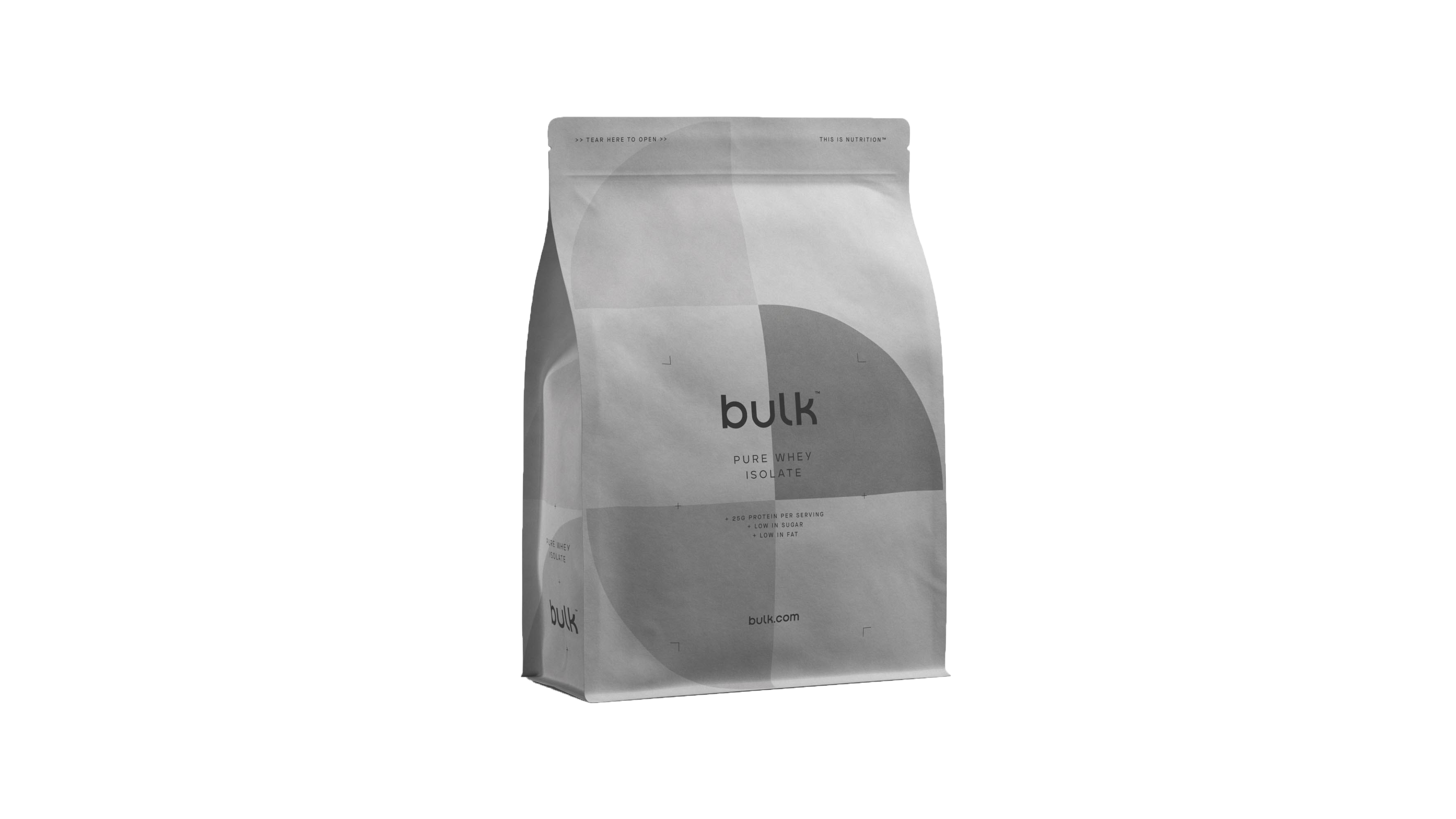

1. Bulk Pure Whey Isolate
Specifications
Reasons to buy
Reasons to avoid
Each 30-gram serving of the Bulk Pure Whey Isolate delivers 26 grams of protein and only minuscule amounts of sugar and fat, making it the No.1 choice for people who tend to plan their meals meticulously. According to Bulk, Pure Whey Isolate uses "premium whey protein isolate sourced from European, grass-fed dairy cows", so one would hope it's decent The milk and protein powder are also said to be free from hormones and antibiotics.
The product is sweetened with Sucralose instead of Stevia, so if you're opposed to the latter's taste, you can rest assured the Pure Whey Isolate doesn't have any funny aftertaste. At least not more than your average protein powder. Alternatively, you can give Bulk's Informed Whey Protein a try. Apparently, it's the "very best whey protein shake from Bulk, created for elite athletes" and comes in different flavours than the Pure Whey Isolate, too.
The added benefit of the Informed Whey is that it's tested for banned substances, making it ideal for pro athletes. And not just lifters but cyclists, runners and so on. Better still, it comes in some of the best flavours I've seen in a while, including Salted Caramel & Walnut and Chocolate Hazelnut Biscuit.
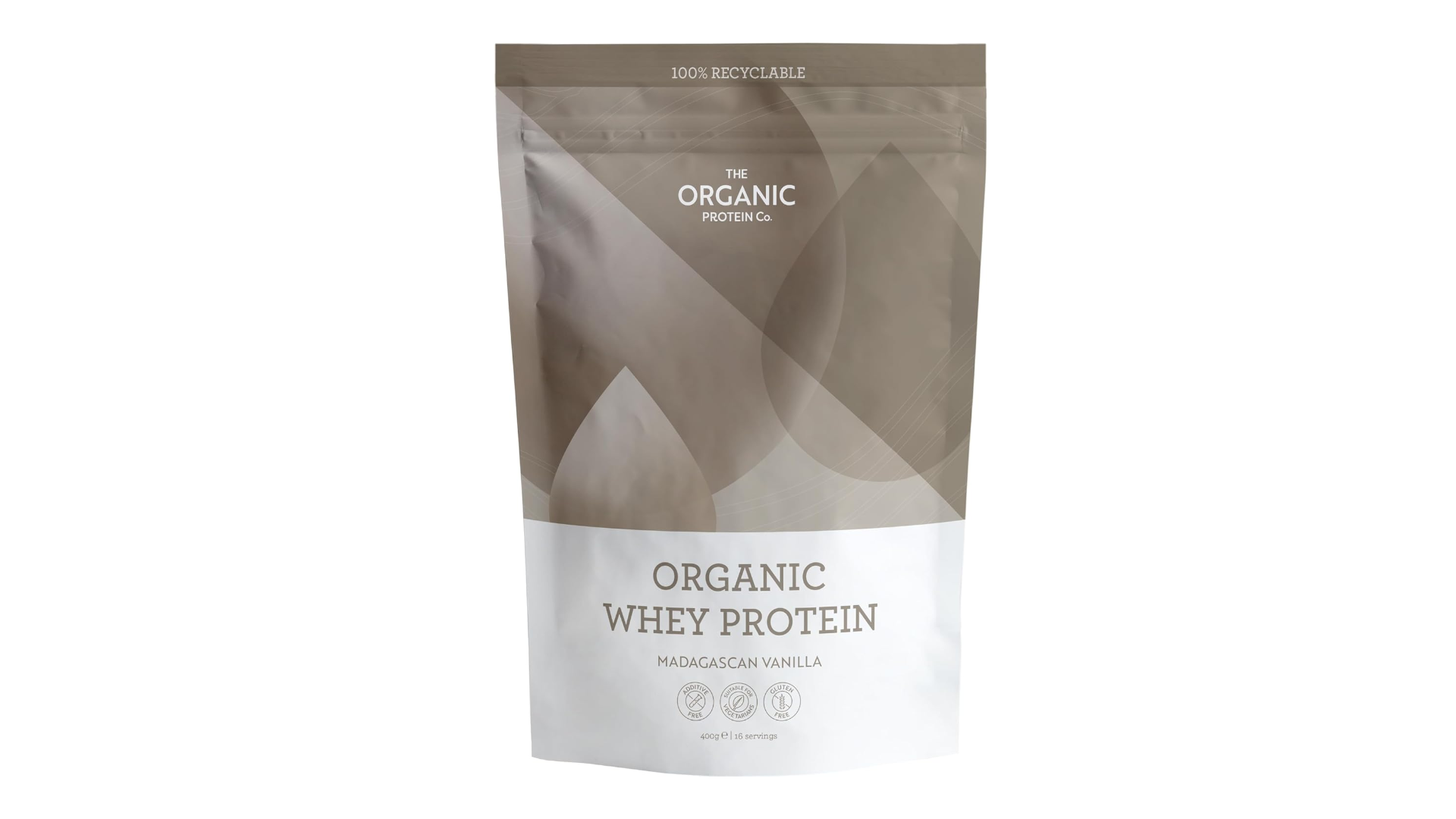

2. Organic Protein Company Whey Protein
Specifications
Reasons to buy
Reasons to avoid
The Organic Protein Company Whey Protein is a good example of why organic supplements have more benefits than just being healthier than their regular counterparts. Sure, the protein used in the Organic Protein Company Whey Protein is derived from grass-fed cows and contains no additives. Still, it also delivers on texture, micronutrients and – most importantly – protein content.
Each 25-gram serving of the Organic Protein Company Whey Protein contains just under 20 grams of protein and only 2/1 grams of sugar and fat, respectively. This powder also mixes well and can be used with either milk or water, or you can go crazy and use it with porridge or even savoury stuff (the unflavoured variety is best for this purpose). We particularly enjoyed the Madagascan Vanilla which was super refreshing with a much more natural vanilla taste, rather than a sickly sweet artificial one.
The Organic Protein Company Whey Protein contains all the essential and branched-chain amino acids you need for muscle building and repair, and it is also hormone-free, gluten-free, soy-free and GMO-free. The downside? It costs twice as much as your run-of-the-mill whey protein. A 400-gram bag costing £24 is definitely not cheap, but in return, you can rest assured you don't pump your body full of chemicals, preservatives and unnatural additives.
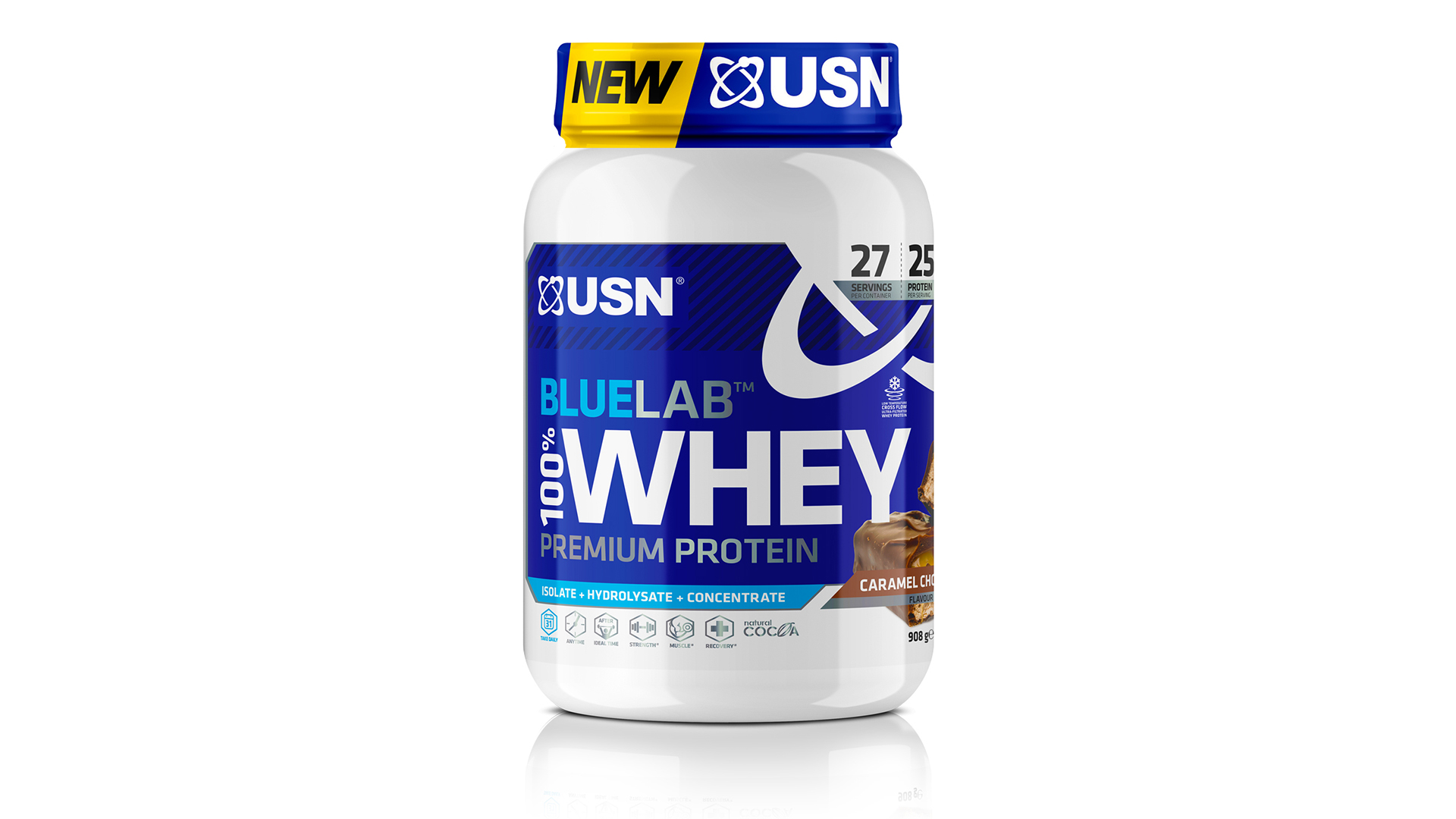

3. USN Blue Lab 100% Whey
Specifications
Reasons to buy
Reasons to avoid
The caramel chocolate flavour that we tested here is one of the most convincing flavours where whey protein is concerned. It lacks that nasty chemical taste that other cheaper rivals seem to possess and blends extremely well with water. It's specifically engineered for some of the most demanding athletes on the planet, meaning it contains quality ingredients and shuns much of the chemical bulk found in rival powders.
An impressive 26 grams of protein in a single scoop should be enough to suit most needs, but we found ourselves opting for a second portion to thicken up the drink a little and add some punch to the flavour. Easy to guzzle, packed with important amino acids and incredibly low in fat and sugar content, the USN Blue Lab 100% Whey is well worth a try.
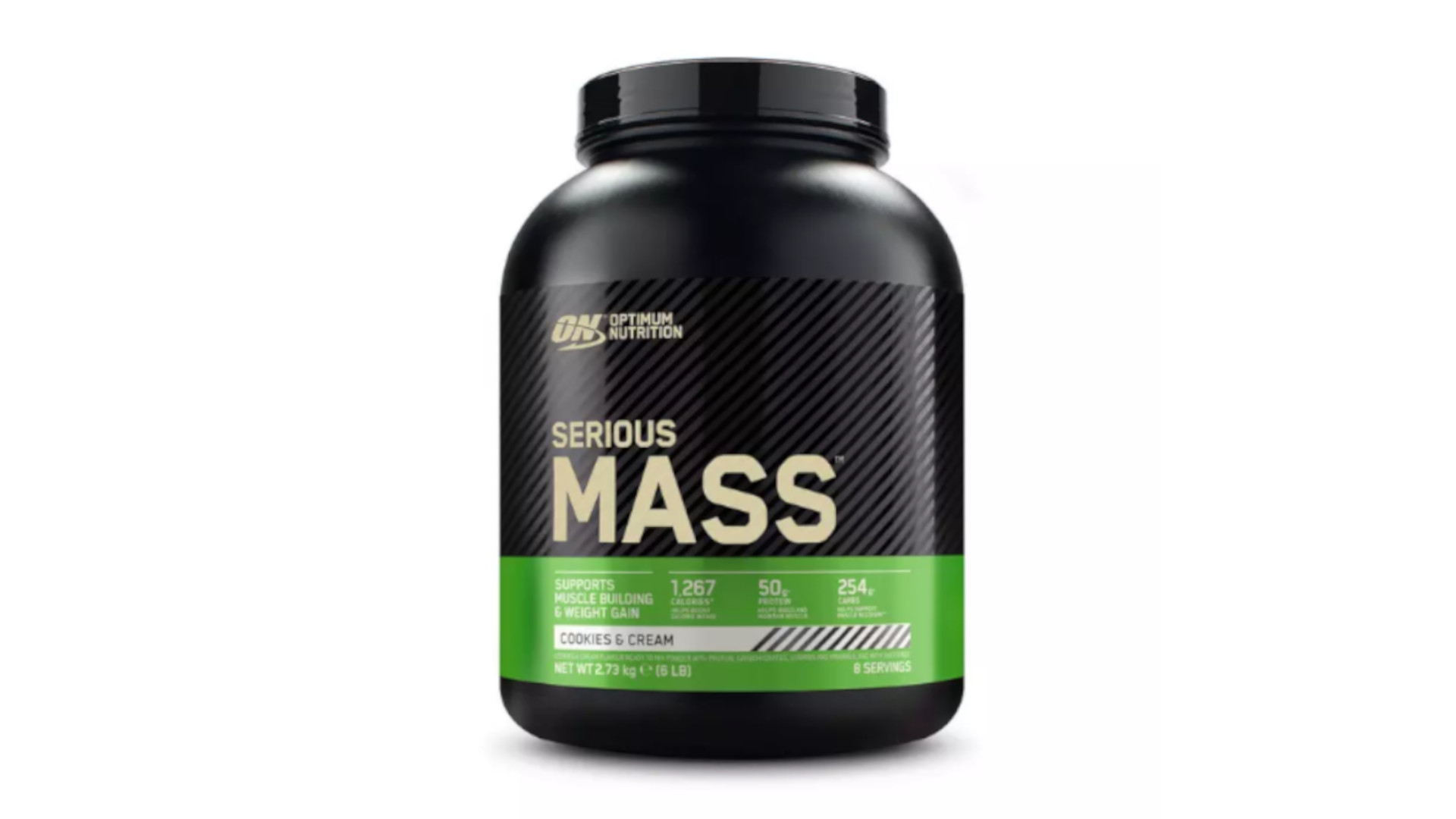

4. ON Serious Mass
Specifications
Reasons to buy
Reasons to avoid
When you’re looking to pack on extra weight consuming extra calories isn’t easy, but that’s where Optimum Nutrition’s serious mass comes in. Just to note, this is a mass gainer, not your regular protein shake, so it does pack in the calories. Each serving contains a whopping 1250 calories, 55 grams of protein, and 250 grams of carbs, to help increase your body weight and muscle stores. There’s also 3 gramsof creatine included to help support your training and muscle growth, if that’s your aim.
Our tester, who’s a powerlifter and can squat over 300kg at 83kg body weight, told us this was the only mass gainer that helped him gain weight when he started out training. Unlike other mass gainers, that often feel like drinking a super thick milkshake, he told us this one was just like drinking your regular protein shake. He said the chocolate flavour was very tasty, mixed perfectly with water, and left his stomach feeling fine afterwards too.
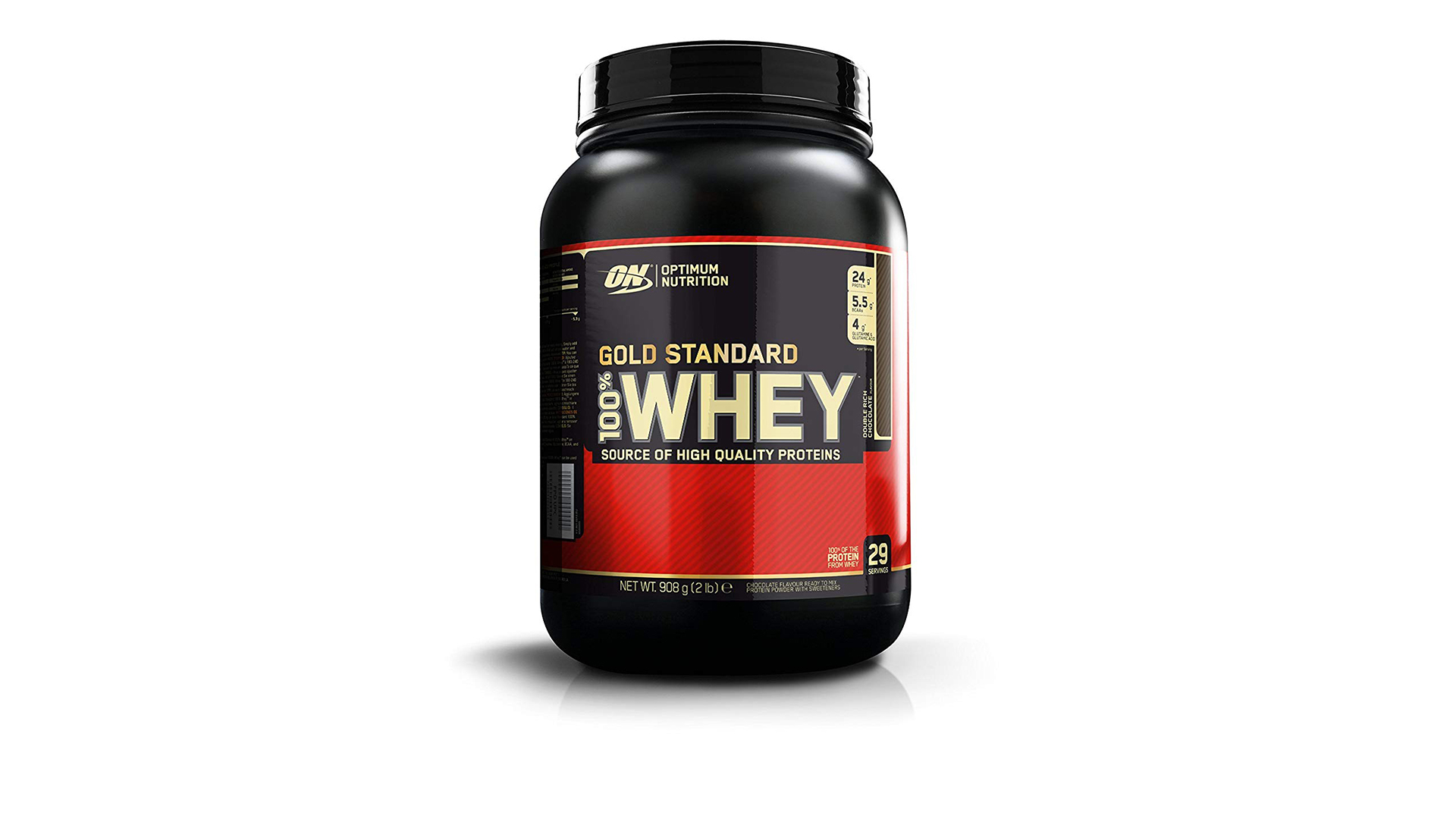

6. ON Gold Standard 100% Whey Protein
Specifications
Reasons to buy
Reasons to avoid
Optimum Nutrition claims their Gold Standard 100% Whey Protein is the world’s “No1 best-selling whey protein powder” and we agree that it’s up there, especially when it comes to flavour. We tried the Double Rich Chocolate, French Vanilla, and Delicious Strawberry, and they tasted pretty much identical to a Nesquik milkshake. Albeit, the latter two are particularly sweet, however, there are 14 flavours to choose from. It mixes incredibly well with water (and porridge) and is probably one of the smoothest protein powders to drink that we’ve tested.
With 24 grams of protein and 5.5 grams of BCAAs, it delivers a hefty dose of muscle-building nutrients with each 30 gram scoop. They’ve also thrown in 4 grams of glutamine and glutamine acid to help with digestion. It’s also made of a blend of whey protein isolate, whey protein concentrate, and hydrolysed whey protein isolate, so it’s cheaper than buying whey isolate but doesn’t compromise on quality.
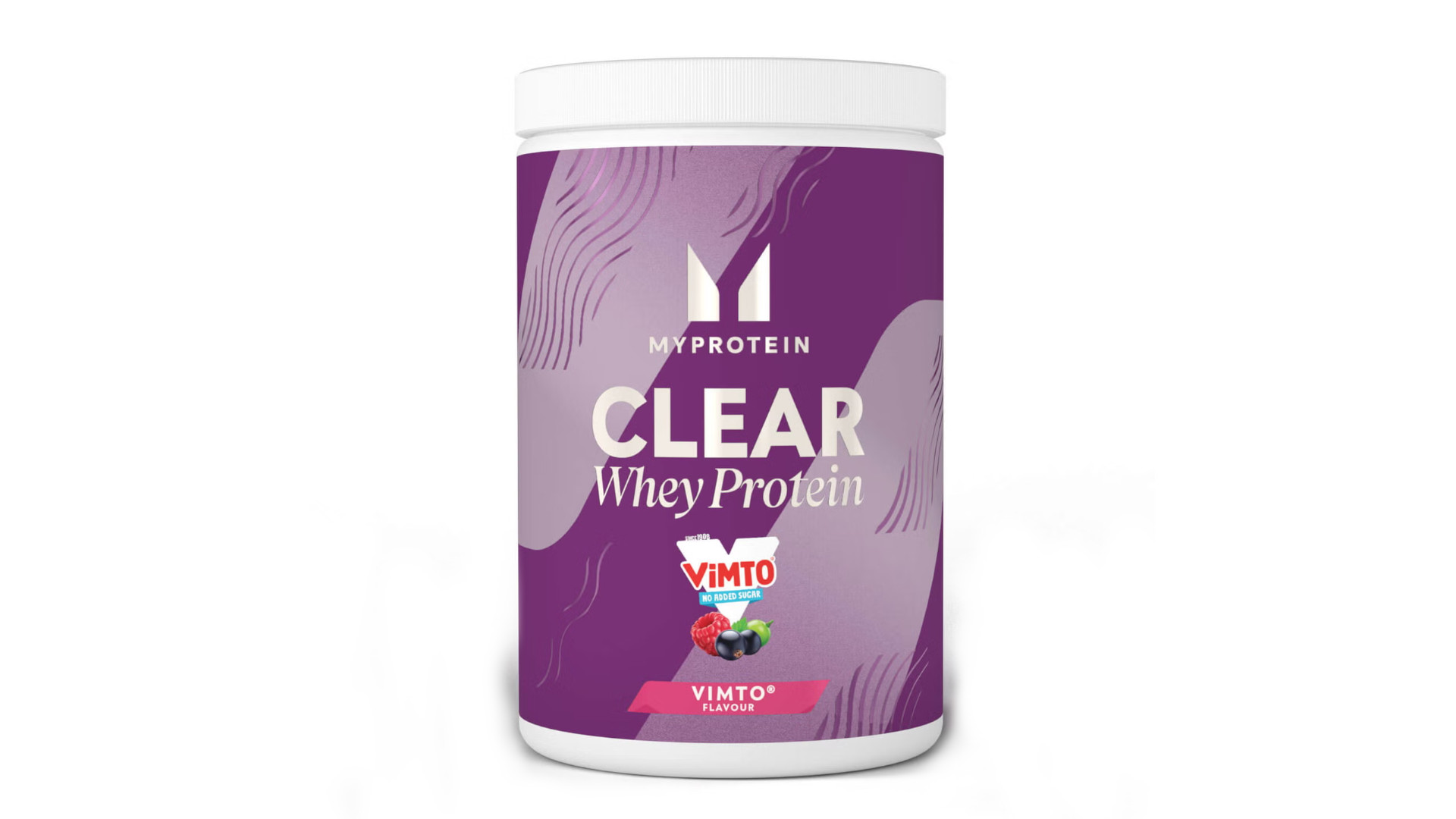

7. MyProtein Clear Whey Protein Powder
Specifications
Clear whey is a great alternative if you don’t enjoy the milky texture of a traditional protein. The Vimto flavour from my MyProtein is pretty beaut, it's light and refreshing, and tastes exactly like the squash when mixed with cold water. However, if you don’t like Vimto, MyProtein also has 18 different fruity flavours for you to choose from, so you’re bound to find something that you like.
Our only gripe is that it does froth up quite a lot and can lead to a mini explosion and mess if not opened up in the appropriate setting. MyProtein also recognises this and advises waiting 15 seconds after shaking to let the foam settle. Each scoop contains 20 grams of protein, so a less than traditional protein shakes, however, this is common with clear whey. It also contains no fat, 0.6 grams of sugar, and is only 89 calories, also making it a good choice to aid weight loss journeys.
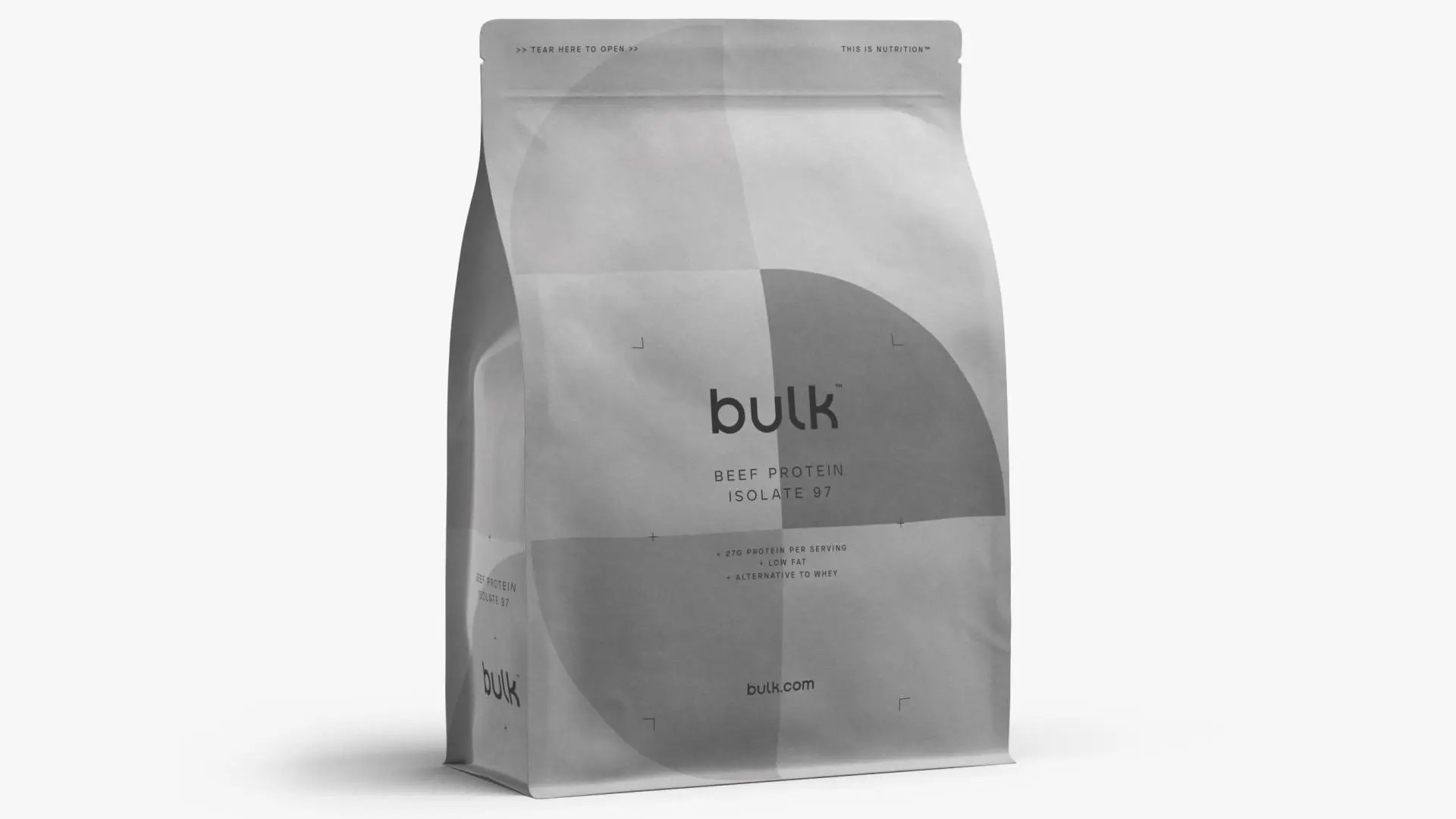

8. Bulk Beef Protein Isolate 97
Specifications
Reasons to buy
Reasons to avoid
If you can’t consume dairy, then Bulk’s beef protein isolate is a good go-to, with each scoop serving providing you with a very decent 29 grams of protein. It’s made from HydroBEEF, sourced from fresh European beef that’s been hydrolyzed to make it even easier for your body to absorb and utilise.
Is it going to taste like you’re chomping on a bit of steak? No. We consumed the chocolate flavour for well over a year whilst going through a dairy-free phase; it does have a strong chocolatey flavour and an ever-so-slightly beef tinge to it. Despite this, it’s 100% drinkable with water, mixed into your hot drinks or porridge (although we experienced a few small clumps now and again). It has an extremely low-fat content of 0.5 grams and contains no sugars. According to Bulk it's also Halal.
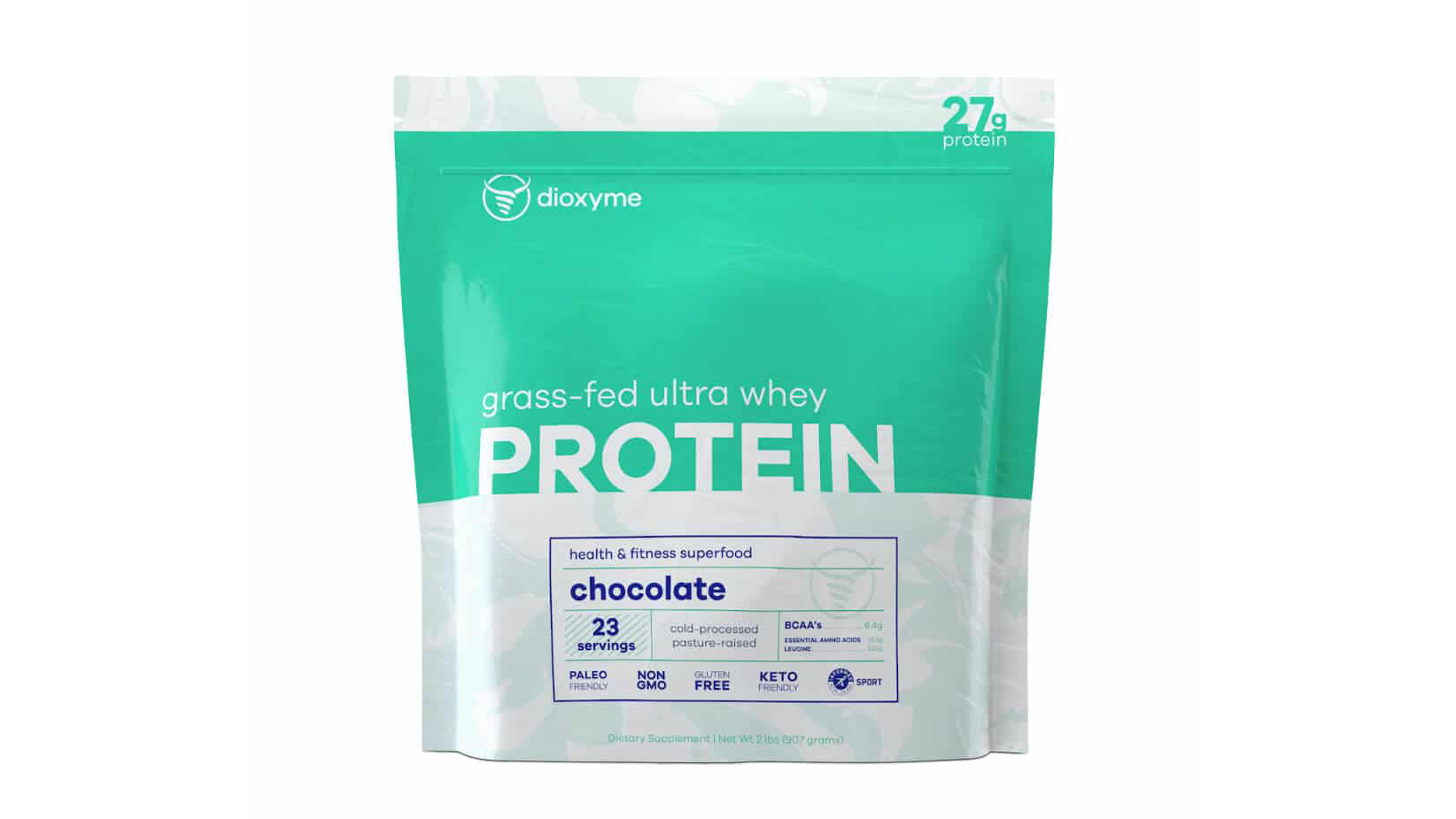

9. Dioxyme Grass-fed Ultra Whey Protein
Specifications
Reasons to buy
Reasons to avoid
Every detail of Dioxyme products seems to be engineered to perfection: the ingredients, the nutritional profile, and the taste all working together in perfect harmony. A good example of this tinkering is the Dioxyme Grass-fed Ultra Whey Protein. It is full of the best quality ingredients you might want to include in your dream protein powder, not to mention it tastes great! Even if only mixed with water, the Dioxyme Grass-fed Ultra Whey Protein has a phenomenal, rich taste that satisfies the taste buds with every gulp.
The Dioxyme Grass-fed Ultra Whey Protein combines whey isolate 93 and whey concentrate 80: these take up 80% of the mix. The sweetener is organic stevia, but even the rest of the ingredients are either non-GMO or organic. No nasties here. Each 38-gram serving contains 27 grams of protein, 3 grams of sugar and less than 1 gram of fat. The amino acid profile is also impressive: no less than 18 different amino acids are crammed into this product. All protein is sourced from grass-fed cows, and the product itself is paleo-, keto- and eco-friendly too, or so does Dioxyme claim.
A slight criticism – and the only one we can offer – is that although Dioxyme ships to the UK, you will need to pay customs tax which will be added to your total. Considering that the product is not cheap as it is, this might put some people off. If you are in the US, I strongly recommend upgrading your protein game and switching to Dioxyme going forward.
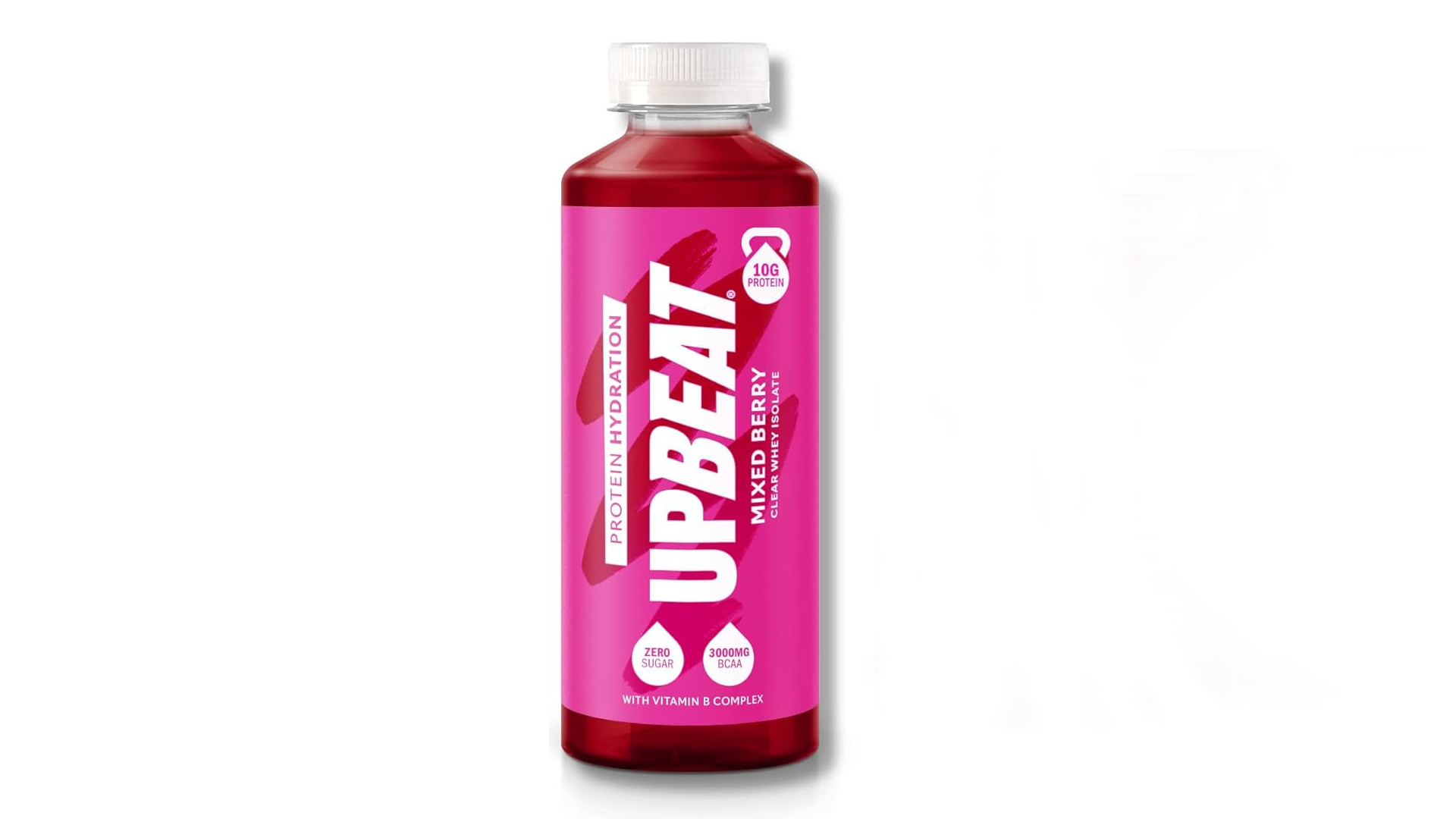

10. UPBEAT Hydration Water
Specifications
Reasons to buy
Reasons to avoid
Don’t want a protein powder, but are looking for additional ways to pack some protein into your diet that don’t include yamming a ton of protein bars? UPBEAT’s Protein Hydration Water is a great alternative. Each 500ml drink is packed with at least 10 grams “of the purest form of whey protein, filtered to remove fat, sugar and lactose to leave a fine protein which is light, clear, and refreshing”.
We tried three of the fruity flavours – mixed berry, zesty orange and tropical – all of which we thought tasted utterly delightful. They do have a slight milky whey aftertaste, but this didn’t make the drink any less enjoyable for us. The mixed berry and zesty orange (our favourites) also contain energising vitamin B complex, to reduce fatigue and support the immune system, as well as 3000mg of BCAAs.
The tropical flavour is best if you need a little ‘pick me up’, as it combines protein shakes, energy drinks, and vitamins all in one. It contains 15 grams of whey protein isolate, energising B vitamins, 1800mg of caffeine, and BCAA. Each drink is also 90 calories or less and lactose-free and gluten free.
Best vegan protein powders
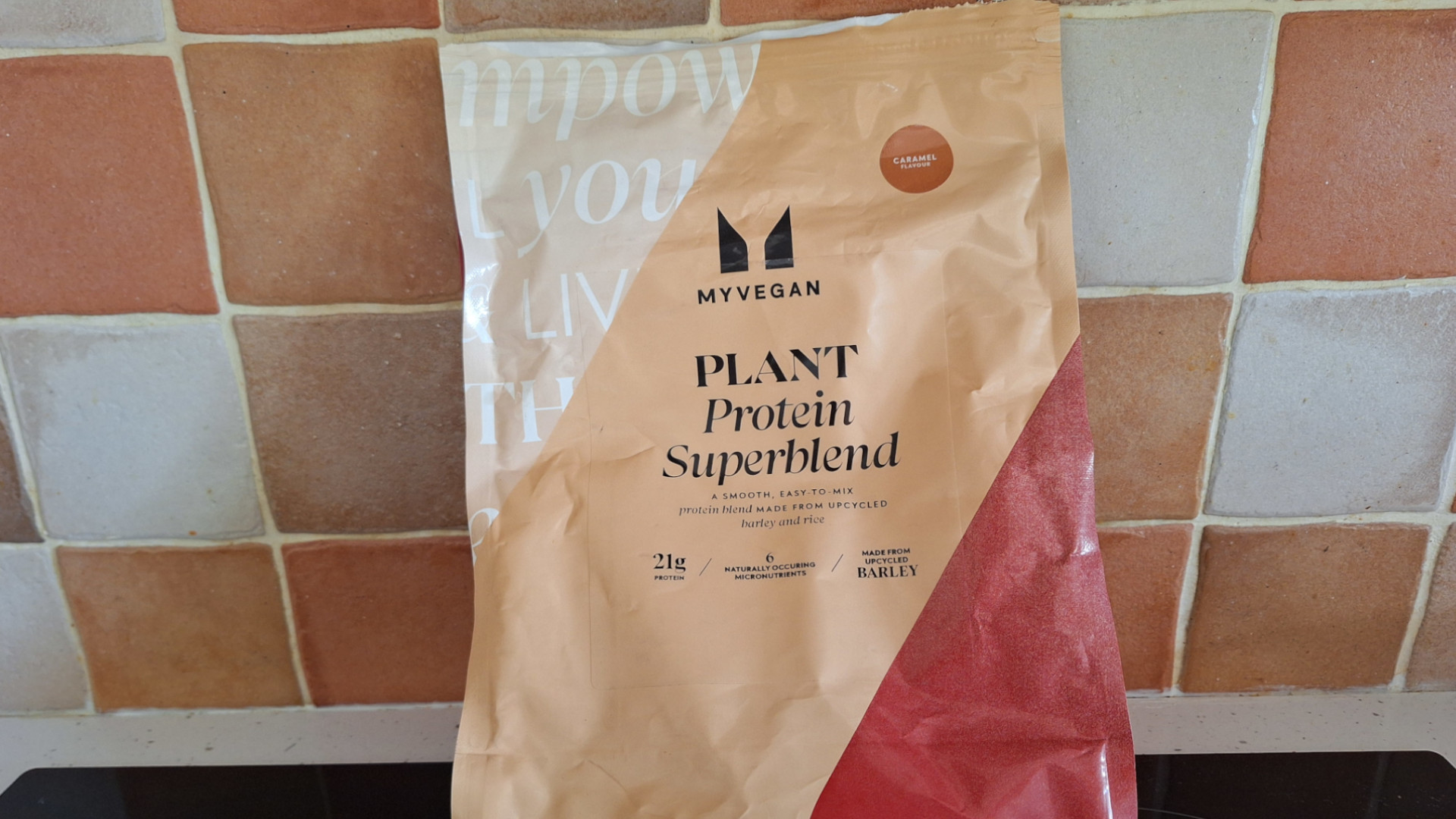

1. MyVegan Protein Superblend
Specifications
Reasons to buy
Reasons to avoid
We won’t beat around the bush here, this is without a doubt the best vegan protein powder that we’ve tasted by a mile. If you’re tired of that grainy, bitty texture you get with a lot of vegan protein powders, then MyVegan’s Protein Superblend is perfect, as it’s SO smooth to drink. As well as being packed with 21 grams of protein per serving and all nine essential amino acids, it also contains B12 and copper to support your metabolism and is high in potassium for healthy muscles.
What makes this vegan protein different is that it’s made from upcycled barley so, not only does it taste great, but it's also good for the planet. It comes in three flavours— chocolate, iced coffee and caramel— all of which are delicious, but the winners for us had to be chocolate and iced coffee. They are very sweet though, so if you don’t have a sweet tooth you may wince a little. It mixes superbly with water, plant milk, porridge, and even yogurt if you’re looking for a protein-packed sweet treat.
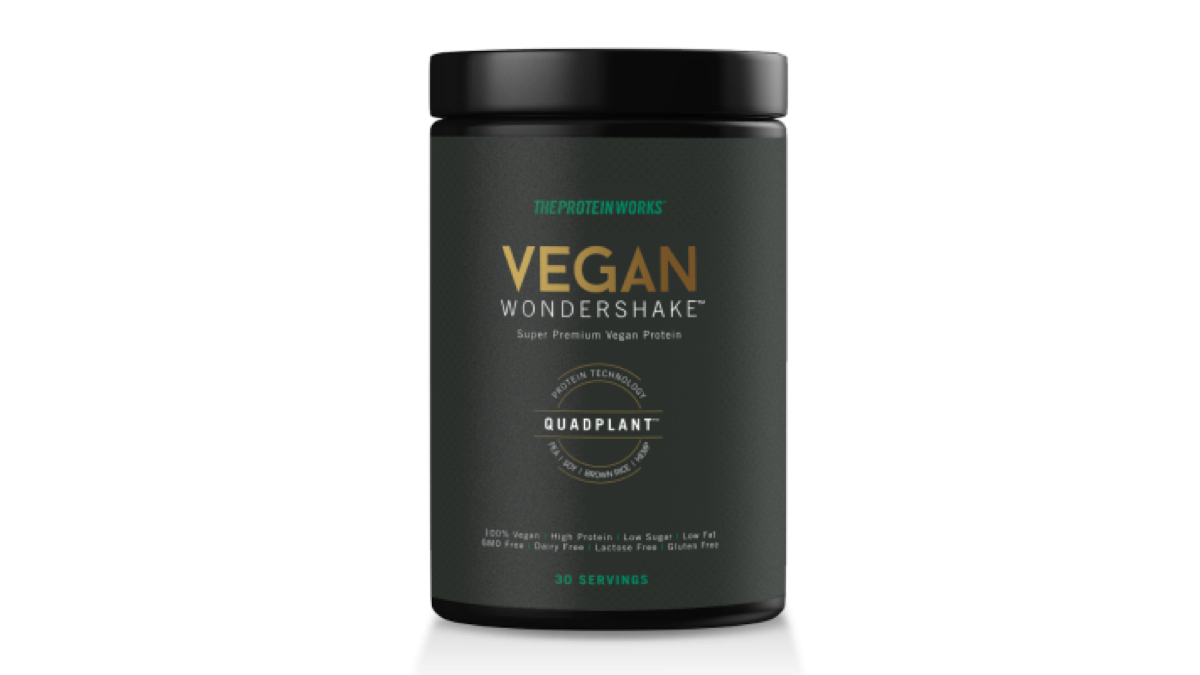

2. The Protein Works Vegan Wondershake
Specifications
Reasons to buy
Reasons to avoid
Given the higher calorie content of The Protein Works' Vegan Wondershake, this protein powder could be featured on T3's best weight gainer guide, too, but we felt it's best to leave it on this list instead.
The Vegan Wondershake has it all that made Vegan Protein Extreme great: it's high in protein (85%), low on sugar, virtually fat-free and above all, has an acceptable taste. Not just acceptable: it actually tastes good, especially in comparison to some other popular vegan meal replacement products.
It is not recommended for weight loss, though, due to the high-calorie content but if you are exercising more vigorously, definitely give the Vegan Wondershake a try.
Check our The Protein Works discount codes before you buy.
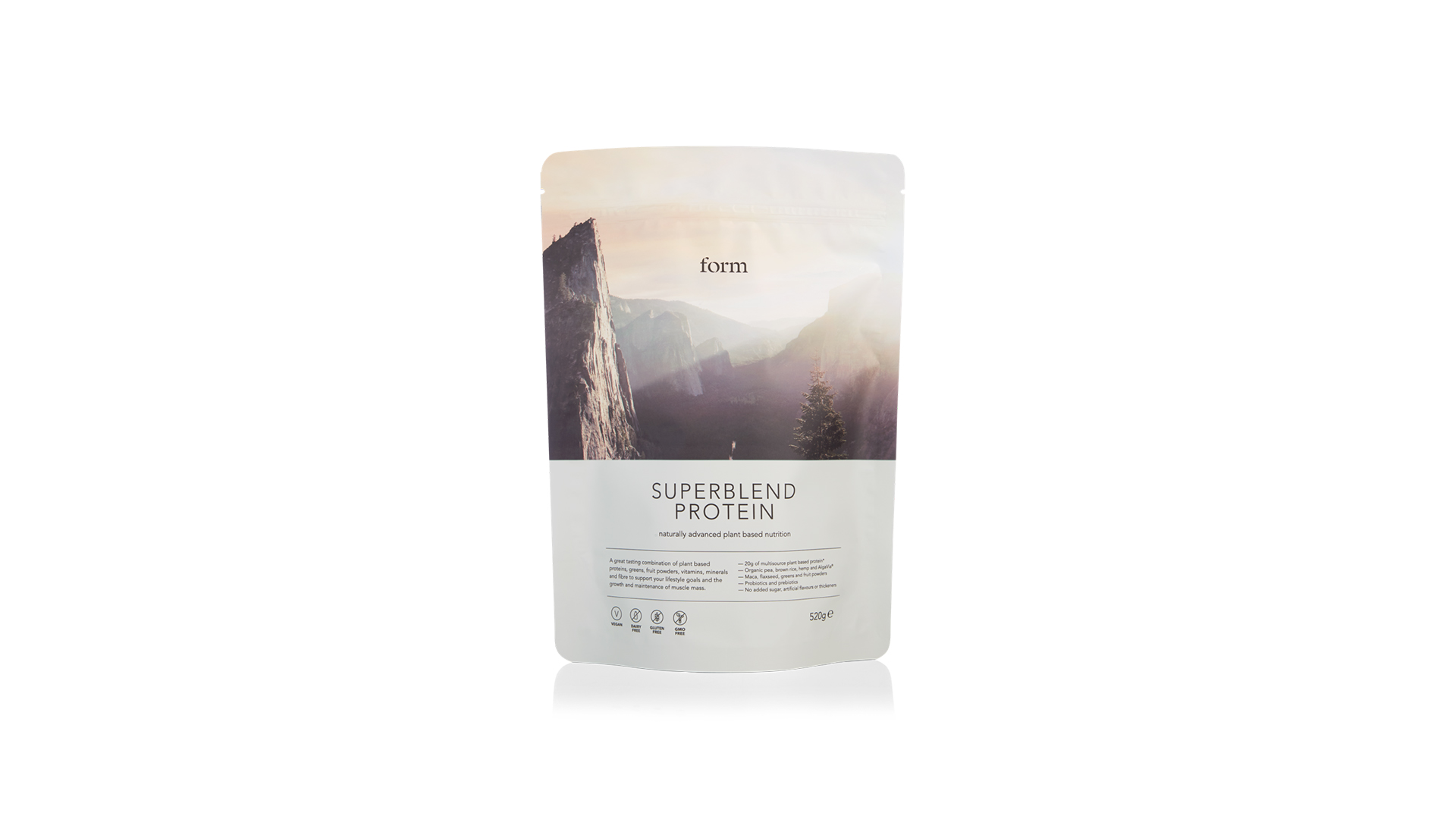

3. Form Performance Protein
Specifications
Reasons to buy
Reasons to avoid
We found the chocolate peanut offering from Form genuinely enjoyable to drink, boasting a texture and flavour that isn't far off a proper milkshake. It's also completely vegan-friendly, gluten-free and is derived 100 per cent from plant-based products, meaning there is a pleasing lack of chemicals on the ingredients list.
A single serving packs a whopping 30 grams of protein (which is extremely decent) from a diverse blend of brown rice, Algavia and hemp. Each serving also contains a complete amino acid profile and additional probiotics to help boost the immune system of anyone working hard in the gym or out on the field.
Blend it with water, and it's enjoyable. Mix it with almond milk or another dairy-free alternative, throw in a banana, and you have a genuinely tasty treat that's delivering a hefty dose of protein with every gulp.
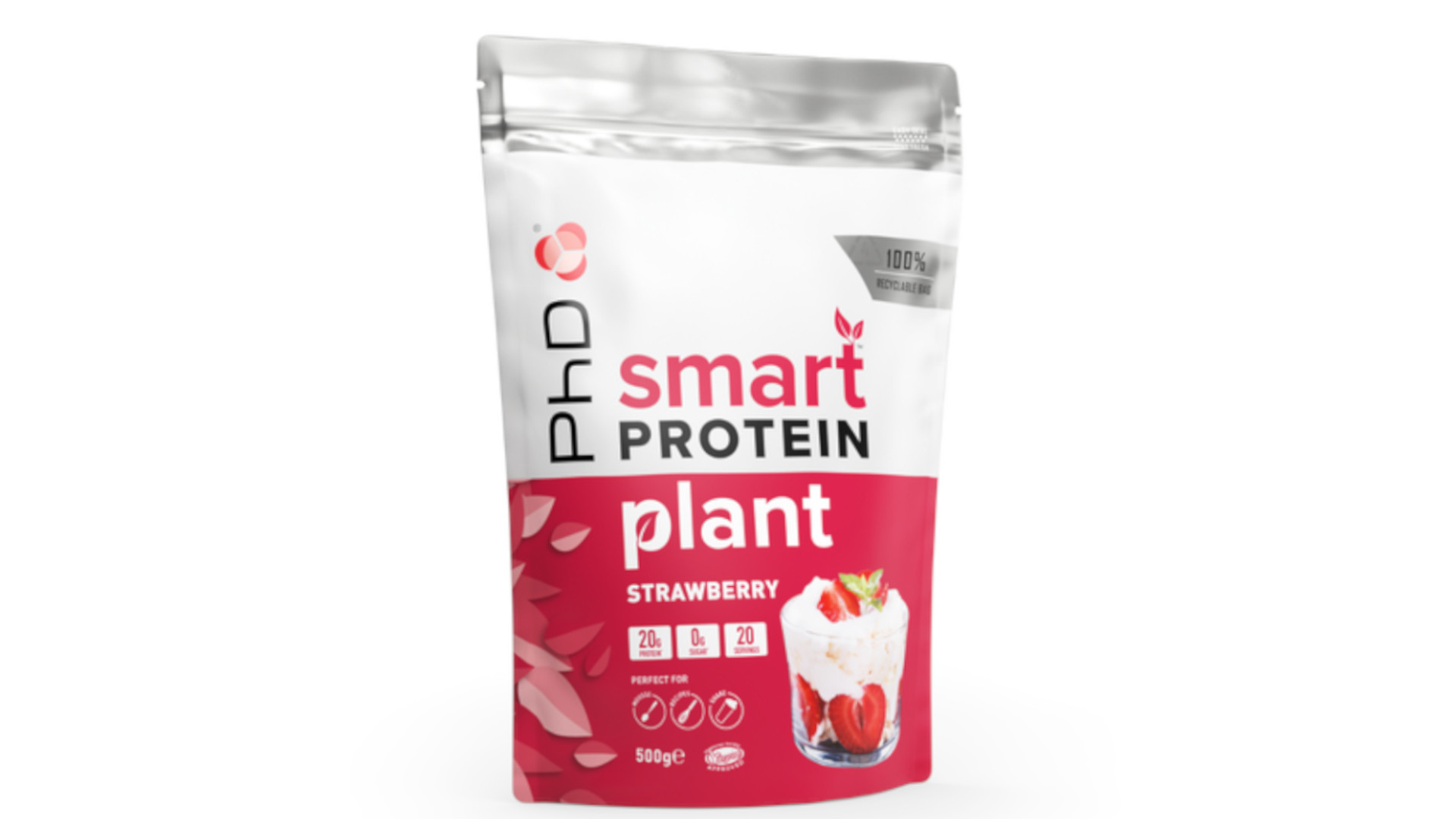

4. PHD Smart Plant Protein
Specifications
Reasons to buy
Reasons to avoid
The PhD Nutrition Smart Plant Protein gets its protein content from two sources – pea and soya – and it has approval from the Vegetarian Society. It's low on carbs, with only 1.8 grams per serving, contains no sugar and each serving is less than 100 calories. It's therefore a good option if you're trying to keep your calorie intake to a minimum.
There's three different flavours: chocolate cookie, salted caramel and strawberry. We tried the latter, which we thought mixed really well with water. Although the strawberry flavour isn't too sweet it did have a slightly grainy aftertaste. PhD Nutrition also states on its site that it's also great for baking with and including in pancakes, cookies, or mousses. We'll admit, we haven't got round to whipping up any delights with it yet, but it's a plus in our eyes.
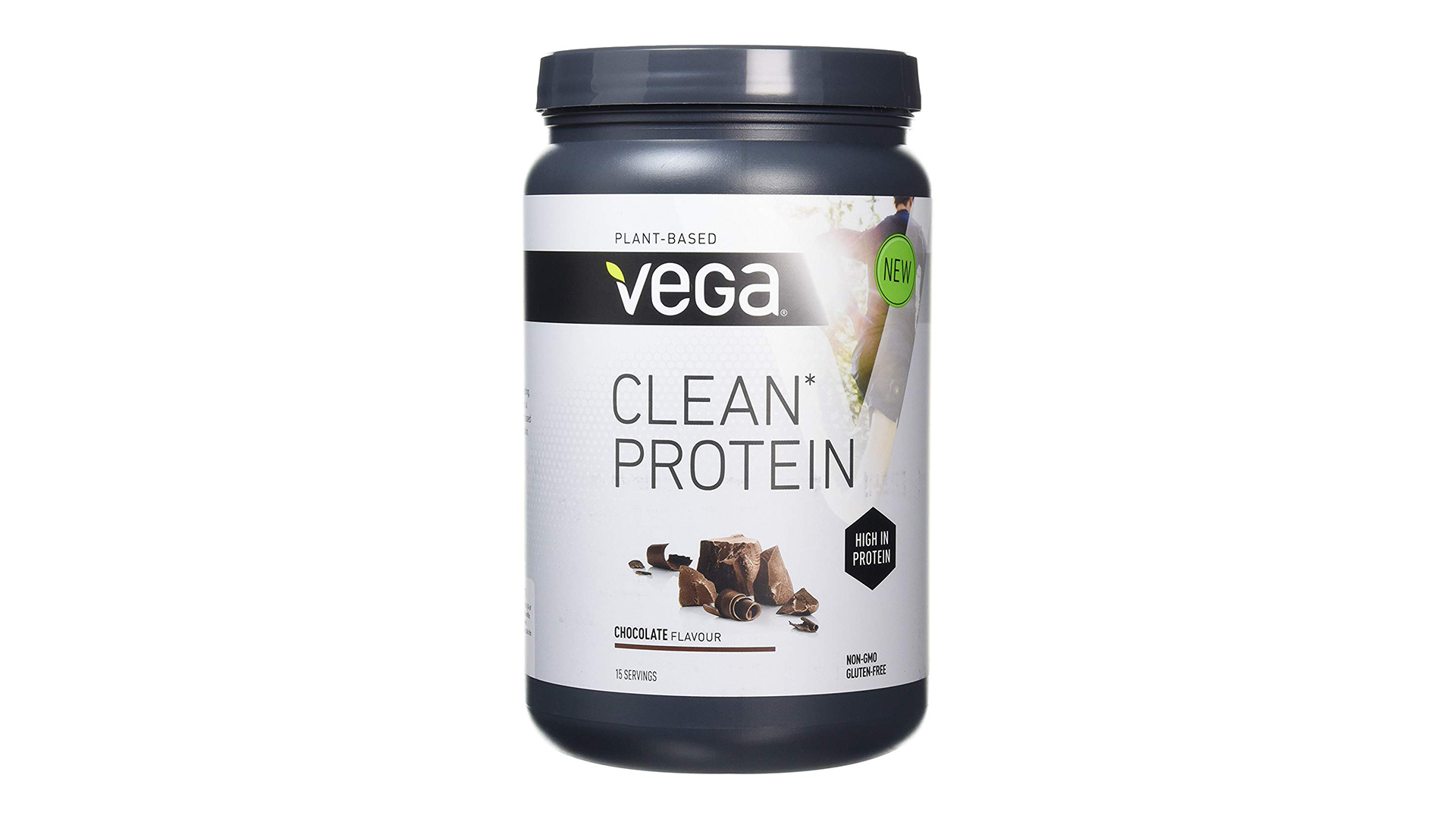

5. Vega Clean Protein
Specifications
Reasons to buy
Reasons to avoid
Made from pea, hemp, alfalfa and pumpkin, the Vega Clean Protein really does live up to its name, while a distinct lack of sugar and fat makes it one of the healthiest choices to go for. Unfortunately, there is a hefty compromise on texture and taste, with the chocolate flavour tested here not really doing much for these tastebuds.
It requires a more vigorous mix than some of the other powders featured on this list, but we did find it one of the easiest on the stomach, perhaps thanks to an additional digestive enzyme derived from pineapple.
FAQs
What is the best protein powder?
Navigating the minefield of protein powder terminology can be a nightmare, as there are various types that all work differently. “When it comes to selecting the best protein powder it ultimately depends on individual needs, dietary preferences, and lifestyle,” says Dr. Mark Evans, Optimum Nutrition, Performance Nutritionist. “The best protein powder is one that you enjoy, fits into your daily schedule and one you look forward to ensuring consistent intake.” Check out our list below of the different types of protein powders, to help you choose the one that’s best for you.
What are the different types of protein powders?
Whey Protein Powder is the most common form of protein powder that comes from milk during the cheese-making process. “It’s a high-quality protein source, meaning it contains all the essential amino acids required for building muscle and it has a rapid absorption rate, making it a great choice around training sessions,” says Dr. Evans.
Casein Protein Powder also comes from milk, but it has a slower digestion rate than whey protein, which means it supplies amino acids to the body over a more prolonged period. “This makes it an excellent protein source between meals, during extended periods of fasting, or before bed,” explains Dr. Evans.
Plant protein powders are vegan-friendly and are derived from plants like brown rice, peas, wheat, soybeans, and more. “While some plant protein sources may lack specific essential amino acids individually, combining different plant proteins such as pea and rice proteins can create a complete high-quality protein that effectively supports muscle growth,” says Dr. Evans.
Clear protein powders have become increasingly popular for those looking for a light, juice-like alternative to traditional ‘creamy’ protein shakes. “These powders are available as a whey or plant-based alternatives, so make sure to check the label based on your own dietary needs,” explains Dr. Evans. “They’re an ideal choice for people with digestive sensitives to traditional protein powders, for hydration support, and those looking to increase their daily protein intake.”
What is the best protein powder for weight loss?
Sadly, there is no one best protein powder specifically for weight loss. Weight loss is complex and, before undergoing any sort of weight loss journey, Dr. Evans advises consulting with a nutritionist, dietician, or healthcare professional. To lose weight you need to consume less calories than your body burns, known as a calorie deficit, therefore choosing a protein with low calories can support this.
“One of the other goals during a weight loss period is to lose body fat and to maintain muscle mass,” says Dr. Evans. “Protein powders can help you hit your daily protein requirements and give your muscles the support they need while you’re losing weight. Find the protein powder that you enjoy and that fits your dietary requirements to keep you on track.”
What is the best protein powder for muscle growth?
“Whey protein has a rapid absorption rate, contains all the essential amino acids to support muscle growth, and is available in a range of different flavours,” explains Dr. Evans. “Using whey protein around your training sessions is the perfect way to support your muscle-building efforts.” To build muscle you also need to be eating in a calorie surplus, therefore look for a protein powder with slightly higher calories (or even a mass gainer if you’re looking to do a big bulk). Choosing a protein powder that also includes the supplement creatine can help raise your muscle gains.
How much protein do you need a day?
How much is enough protein is a constant source of debate among professionals, but the consensus at the moment states that you'll need to take anything between 1.6-2.2 grams of protein per body kilogram per day if you do rigorous training.
The British Heart Foundation says, "Most adults need around 0.75g of protein per kilo of body weight per day (for the average woman, this is 45g or 55g for men)." This is for people who don't exercise regularly, only 'exist'.
Once you start exercising, you will need to up your protein intake, depending on how vigorous said exercising is, all the way to 1.6-2.2 grams per body kilo per day mentioned above. If you follow a rigorous bodybuilding regime, as well as taking enough protein, you should also make sure you include an ample amount of healthy carbs in your diet.
That said, most active adults should be able to get away with taking 1.2-1.5 grams of protein per body kilogram per day.
Is protein powder bad for you?
Whey protein is not bad for anyone, as long as it is used correctly. Protein powders have a high 'bioavailability', meaning your body can quickly absorb the protein found in the powder. Having protein powder as the only source of protein is a bad idea, but having a shake a day when your body needs protein the most – after workouts – can help muscle protein synthesis, a.k.a. gains.
Get all the latest news, reviews, deals and buying guides on gorgeous tech, home and active products from the T3 experts

Bryony’s T3’s official ‘gym-bunny’ and Active Staff Writer, covering all things fitness. She is a certified personal trainer and also a part-time fitness instructor. In her spare time, you will find her in her natural habitat - the gym - where her style of training is a hybrid of bodybuilding and powerlifting. Bryony loves writing about accessible workouts, nutrition and testing innovative fitness products that help you reach your fitness goals and take your training to the next level.
- Matt KollatSection Editor | Active